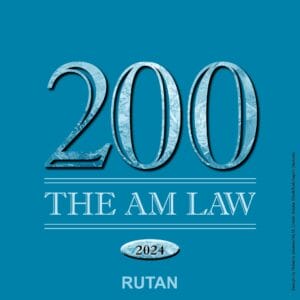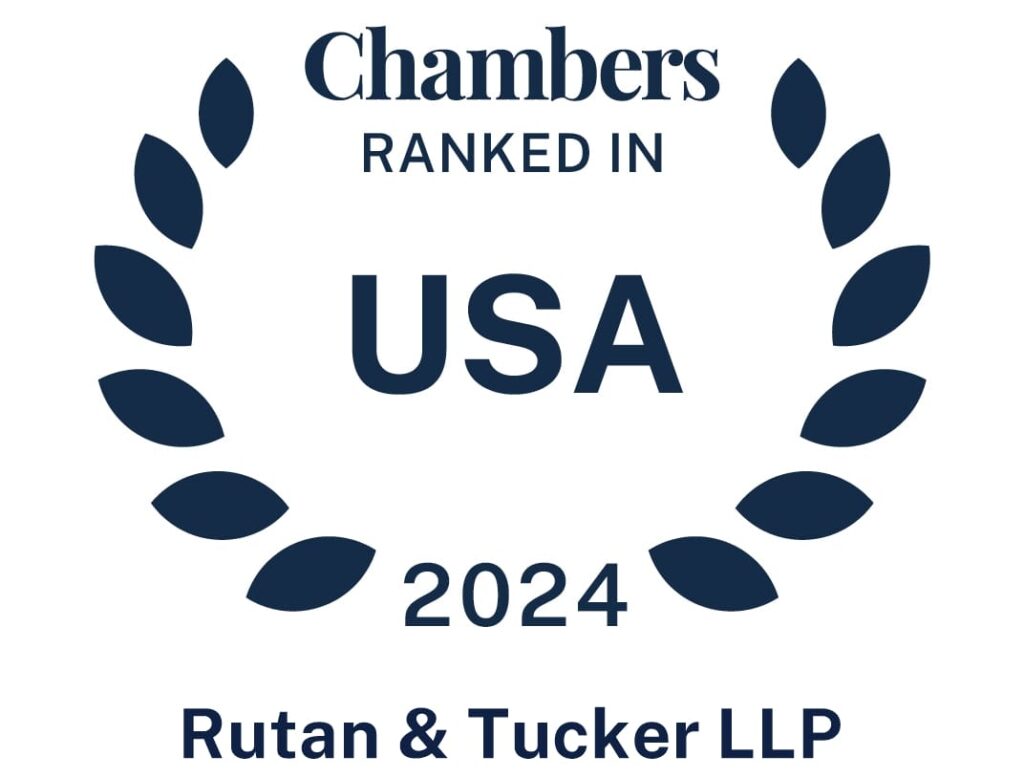By Edson K. McClellan Published in the October 9, 2006 edition of the Inland Empire Business Press and the October 2006 edition of the National Human Resource Association Southern California Newsletter.
California is an employee-friendly state. Perhaps nowhere is that more evident than in wage-claim proceedings before the California Labor Commissioner, also known as the Division of Labor Standards Enforcement (the “DLSE”). This article provides a short explanation of the DLSE’s role in adjudicating wage claims, a description of what to expect in DLSE proceedings, and practical tips for employers defending wage claims in this arena. Because employers sometimes find it more economical to defend wage claims without representation by an attorney, it is important to know what to expect at the proceedings and how to prepare. The DLSE’s Role. California employees who believe they are owed wages can file a lawsuit in court or in arbitration (under an arbitration agreement, if one was entered). Alternatively, employees can file a wage claim with the DLSE or the United States Department of Labor. Many employees choose to file wage claims with the DLSE because the DLSE is regarded as pro-employee, and because the adjudication process is inexpensive and streamlined, relative to court proceedings. The DLSE’s stated mission is to “vigorously enforce minimum labor standards in order to ensure employees are not required or permitted to work under substandard unlawful conditions, and to protect employers who comply with the law from those who attempt to gain competitive advantage at the expense of their workers by failing to comply with minimum labor standards.” Given that the DLSE’s mission is to protect employee rights, it is not surprising that the DLSE has earned a reputation for being pro-employee in its adjudication of wage claims. Whenever a disputed factual or legal issue could tilt in either direction, the DLSE and its Deputy Labor Commissioners typically take the side of the employee. The DLSE contains two primary branches, the wage claim offices and the Bureau of Field Enforcement. Claims handled by the Bureau of Field Enforcement are typically addressed as class claims and involve an audit of an employer’s pay practices. The wage claim offices handle individual wage claims, which are the subject of this article. Orange County has one wage claim district office, located in Santa Ana. As anyone who has attended a conference or hearing before the DLSE knows, DLSE proceedings are not grandiose court proceedings. They are administrative proceedings, conducted informally, typically in small rooms in interior offices of non-descript government buildings. You will not feel the tingle of excitement and reverence you might experience walking into the pristine courtrooms of the United States District Courts in Santa Ana or Los Angeles. Nevertheless, the DLSE’s decision following a hearing is enforceable in court as a valid judgment. Thus, while DLSE proceedings may have the feel of an argument in your living room, the outcomes can be quite serious. The Initial Conference. Employees initiate wage claims with the DLSE by completing a form at the wage claim office. A deputy at the wage claim office assists the employee in filling out the form and attempts to obtain as much information as possible. Once the DLSE decides to handle the claim as an individual claim, it assigns the claim to a Deputy Labor Commissioner and mails the employee and employer a “Notice of Claim and Conference.” This notice gives the employer notice of a scheduled conference at the DLSE office, typically about 30 days after mailing of the notice. The notice advises the employer that it must bring certain items, such as a city business license, to the conference. As discussed below, the conference is essentially a mediation conducted by the Deputy Labor Commissioner to attempt to resolve the dispute. The employer cannot lose at the conference. The worst that can happen for the employer is that the case does not settle and instead proceeds to a “hearing,” which is the DLSE equivalent of a trial. After receiving the Notice, the employer either can offer to pay the employee the amount demanded in the claim, can negotiate with the employee before the conference to settle the claim, or can appear at the conference and contest the claim. If the amount demanded is small, or if the employer simply has no defense to the claim, sometimes it is more economical for the employer to pay the amount demanded, rather than have an attorney attend and represent the company. If the employer decides to contest the claim, the next step is to decide whether to involve legal counsel, and if so, at what level. The company must send a company representative to the conference, but the company has a choice of whether to be represented at the conference by counsel. If the amount in controversy is manageable and the legal issues are straightforward, it may be enough simply to receive some coaching and advice from an attorney before the conference, rather than pay an attorney to attend. On the other hand, if the amount in controversy is significant or the legal issues are thorny, the employer may prefer to have legal counsel attend the conference. Further, if the employer is already engaged in other litigation with the employee, or if the employer expects the employee may file some other claim against the company, then the employer should strongly consider sending an attorney to the conference to ensure that no damage is done in other cases or potential cases. Similarly, if the employer expects the employee to bring his or her own attorney, the employer may want to bring an attorney to keep the playing field level. The conference is conducted in a DLSE conference room, in front of a Deputy Labor Commissioner. The purpose of the conference is to attempt to resolve the wage dispute. No one is placed under oath, and the conference is conducted informally. Typically the Deputy Labor Commissioner starts by reviewing with the employee the basis for his or her claims, and will ask for the employment contract or any other documents bearing on the dispute. The Deputy Labor Commissioner may even encourage the employee to expand his or her claim, if any plausible basis appears for doing so. The Deputy Labor Commissioner then asks the employer to explain its defenses to the wage claim. The Deputy Labor Commissioner’s unwavering strategy in attempting to strike a settlement is to attack both parties’ cases. Even though the attack is expected, the employer should listen carefully to the attack on its case, because the attack may foreshadow the outcome of a hearing before the DLSE. The employer should also listen carefully to the attack on the employee’s case, because the Deputy Labor Commissioner may expose weaknesses in the case the employer had not seen. Because the conference is typically conducted in one sitting, without breaks, the employer should come to the conference with a number in mind for an opening settlement offer, if any, and a number at which the employer hopes to settle. If the case settles at the conference, the DLSE settlement form includes a release of the employer only for the wage claim at issue, as opposed to a general release of all potential claims the employee may someday assert. Because employers always prefer a broader general release of claims, the employer should bring to the conference a short settlement agreement including a general release, and should seek to have the employee agree to this agreement as part of any settlement. Following the conference, the Deputy Labor Commissioner has the authority to dismiss the claim for lack of evidence or lack of jurisdiction, or if the employee has filed a lawsuit in court alleging the same claims. In practice, however, this almost never happens. Instead, the Deputy Labor Commissioner almost always sets a non-settled case for a hearing. The Hearing. The DLSE sets the wage claim for a hearing on a date typically between nine to twelve months after the conference, although the length of time differs from office to office, depending of the office’s backlog. With the exception of subpoenas for documents, no “discovery” is conducted in between the conference and the hearing, unlike the procedure in civil trials. After receiving a Notice of Hearing, the employer has 10 days to file an answer to the complaint. Employers are not required to file an answer, however, and can still present all defenses at the hearing, even if they do not file an answer. Unless an obvious defense or jurisdictional issue bars the DLSE from hearing the claim, there is generally little practical value in answering the complaint. At the start of the hearing, the Hearing Officer (also a Deputy Labor Commissioner, but never the same one who conducted the conference) will typically make one more attempt to lead the parties to settlement. If that attempt is unsuccessful, the hearing will start. Once underway, both the employee and employer will have an opportunity to introduce evidence and argue their case. Strict rules of evidence do not apply at the hearing, and although the parties can object to the introduction of evidence, evidence that would be inadmissible in court is often admitted. Unlike the conference, the hearing is tape-recorded and under oath. Also unlike the conference, at the hearing both parties can introduce witnesses and can cross-examine the opposing parties and their witnesses. As with the initial conference, it is the employer’s and employee’s respective decision whether to be represented by counsel. If the employee is unrepresented at the hearing, the Hearing Officer generally takes a more active role in examining the employer and its witnesses, as if the Hearing Officer were serving as the employee’s attorney. To prepare for the hearing, the employer should gather all of the evidence it contemplates presenting, and should formulate a logical sequence in which to present the evidence. Also before the hearing, the employer or its attorney should gain a firm grasp of the relevant wage-and-hour laws. Although the emphasis at the hearing is always on the disputed facts, the employer should present the facts in a way that best supports its legal defenses. With respect to documents, the employer should bring copies of all documents bearing on the wage claim at issue, including any employment or compensation agreements. The Hearing Officer will appreciate it if the employer brings multiple copies of each document. The employer will also need to decide in advance of the hearing which witnesses it will call, and the employer will need to secure the witnesses’ availability. Before the hearing, either party may request that a subpoena be issued to compel a witness to testify, or to compel the production of documents at the hearing. At the hearing, the employer can expect that the Hearing Officer will scrutinize the employment and other compensation agreements, and that the Hearing Officer may even identify wage claims of the employee that the employee had not asserted in his or her complaint. To the extent possible, the employer should try to keep the hearing focused on the claims the employee alleges in the complaint. The employer should be wary throughout the hearing, however, of all potential minefields that may exist with respect to the employer’s pay practices relative to that employee. Most hearings last no more than an hour, with no breaks. The employee typically puts on his or her case first. The Hearing Officer often gives the parties a chance to make a closing argument. Whoever will give the closing argument on behalf of the employer should keep notes during the hearing of points to make during the closing argument, including a recap of any damning admissions the employee made. The Hearing Officer is required under the Labor Code to issue his or her decision in writing within 30 days of the hearing. The decision is supposed to contain the Hearing Officer’s factual findings and an explanation regarding why the Hearing Officer reached that decision. Sometimes, however, the decision is little more than a check-the-box form. If wages are awarded, the Hearing Officer will also award interest, and if appropriate, “waiting time penalties,” which can amount to up to 30 days’ additional wages! Unlike a wage claim plaintiff who prevails in court, an employee awarded wages at a DLSE hearing is not entitled to recover his or her attorneys’ fees from the employer. Appeal Rights. Either party may appeal the DLSE’s decision to the California Superior Court in accordance with the appropriate rules of jurisdiction. The time for appeal is 10 days from service of the decision. The Superior Court conducts a de novo hearing, meaning that the parties theoretically start with a clean slate in the trial court, and new evidence can be introduced. Employers should be cautious about appealing decisions of the DLSE. The prevailing party in the Superior Court proceedings is entitled to recover attorneys’ fees. On appeal, the employee is “successful,” and therefore entitled to attorneys’ fees, “if the court awards any amount greater than zero.” Thus, the employee can achieve a worse result in court than he or she did before the DLSE, but still recover attorneys’ fees on appeal, if the employee obtains any award at all. The effect of this rule is to discourage employer appeals from DLSE awards. An employer’s right to seek de novo judicial review of a DLSE decision is conditioned on the employer posting a bond or undertaking for the amount of the award. The employer may, however, obtain a court order waiving the bond requirement by establishing both indigence and inability to obtain the necessary bond. Final Thoughts. The best advice for employers is to pay great attention to their pay practices and minimize their risk of winding up before the DLSE. It’s unfriendly turf. If an employer is facing a wage claim, it should carefully investigate the facts and law, and it should not pass up reasonable opportunities to settle. For those claims that cannot or should not be settled and that go to a hearing, prepare, prepare, prepare! About the Author Edson K. McClellan is a senior associate attorney with Rutan & Tucker. He can be reached at (714) 641-3411 or at EMcClellan@rutan.com. About Rutan & Tucker LLP Rutan & Tucker is California’s largest full-service law firm headquartered in Orange County, California with offices in Costa Mesa and Palo Alto. Detailed information about the firm is available at www.rutan.com



